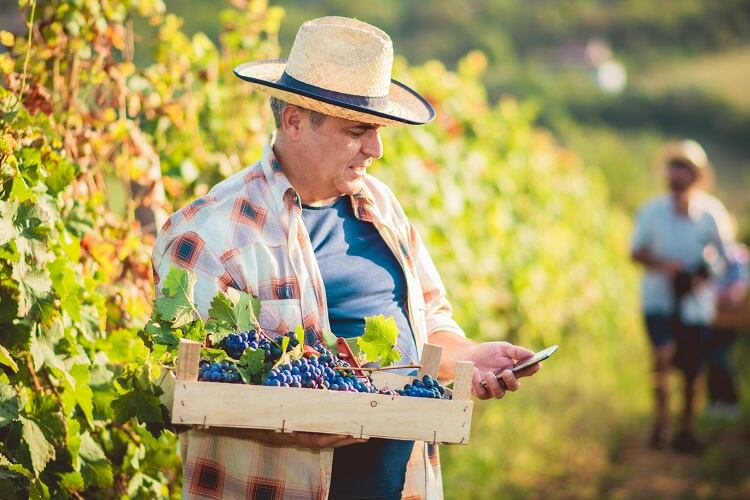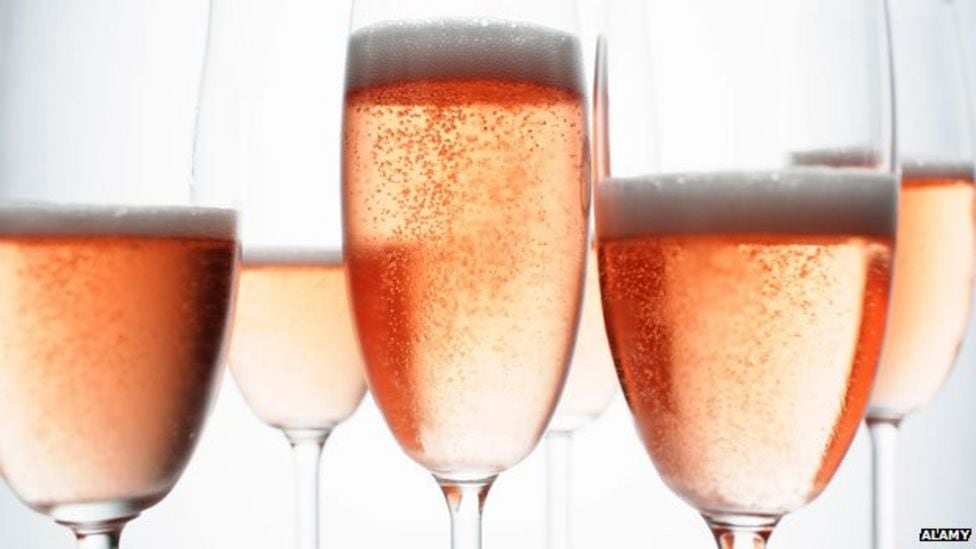Global change poses a major threat to the winemaking industry.
With geology, landscape, soil, and temperature determining which grape varieties can be grown where, as well as their quality and yield, even slight changes in climate can have devastating effects on vines.
The shift in global warmth patterns may move premium grape growing regions out of areas currently devoted to that activity, according to researchers, and simultaneously cause a shift in current grape variety cultivation.
Other research has predicted that by 2100, it is possible the US could lose up to 81% of its premium wine grape acreage.
In Europe, the impact of global warming on wine growing regions would be ‘large’. Already in Tuscany, winemakers are finding grapes are ripening far too early, and it has been suggested that by 2050, ‘vast portions’ of regions on the Mediterranean coastline may become completely inhospitable to grape production.
Having become aware of these challenges, three researchers at Oxford University – with combined expertise in machine learning, R&D and business, and software – saw an opportunity to reduce the impact of climate change on winegrowers.
“Wine is the second largest agricultural production industry after rice. It’s soon to be a $450bn industry,” explained co-founder and COO Sushma Shankar.
“But $90bn of it is currently being lost due to climate events, such as stress and heat. We’re looking at how winemakers can adapt to these changing climatic conditions and survive them.
“That’s where we saw an opportunity. There is no solution that addresses the problem for this market.”
Sustainable farming with precision viticulture
Deep Planet was founded by Shankar, CEO David Carter, and CTO Natalia Efremova in 2018. Its SAS solution, which leverages machine learning, artificial intelligence, and satellite imagery data to assist growers and viticulturists, is called VineSignal.
Accessible via PC or smartphone, the VineSignal designed to help the wine industry manage yield, maturity and irrigation in the face of climate change. It can predict grape maturity and optimal harvesting dates, forecast yield for picking and vintage planning, and optimise irrigation scheduling.
“We use satellite data imagery, machine learning, sense data, and any data we can collection from the vines to help winemakers and growers to help improve overall productivity of their crop,” Shankar told this publication.
With the seasons changing so frequently, harvest can start a couple of weeks earlier than usual, we were told. VineSignal can hep predict that, she continued. Same goes for yield, meaning that producers can optimise logistics during the harvesting period.
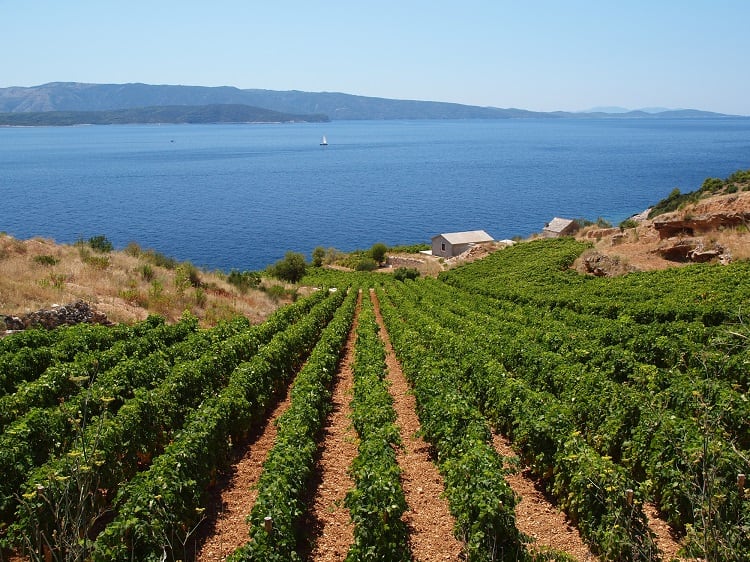
The solution can also be used to identify where there may be an onset of disease in a particular block, allowing growers to treat that specific area consequently reducing their pesticide use. “The same applies for fertilizers,” said the COO.
“At the moment, we’re looking at a very deadly disease for wine called phylloxera. We’re trying to identify anomalies that have occurred over the past five years [that may have contributed to its onset], and that can only be achieved with satellite imagery.”
Evaluating the overall ‘health’ and ‘sustainability’ of the vineyard is another feature, analysing how best nutrients can be managed and soil health improved in the long-term.
Reducing cost of production and price on-shelf
Early data suggests VineSignal can have a significant impact on grower and producers’ bottom lines.
One case study investigating efficiency of production indicated the platform was able to save more than $50 per tonne of grapes produced.
This has much to do with better understanding maturity and sugar levels and ultimately, knowing when to harvest, the COO explained. “All of these things add up for the winemaker and the growers. Because we are able to better pick the grapes, winemakers have a good consistency of grapes in terms of sugar, acid, and pH levels, so they can achieve a certain quality of wine.”
Reducing the cost of inputs is another consideration, particularly in new world regions – such as Australia, where vine irrigation can present a major challenge.
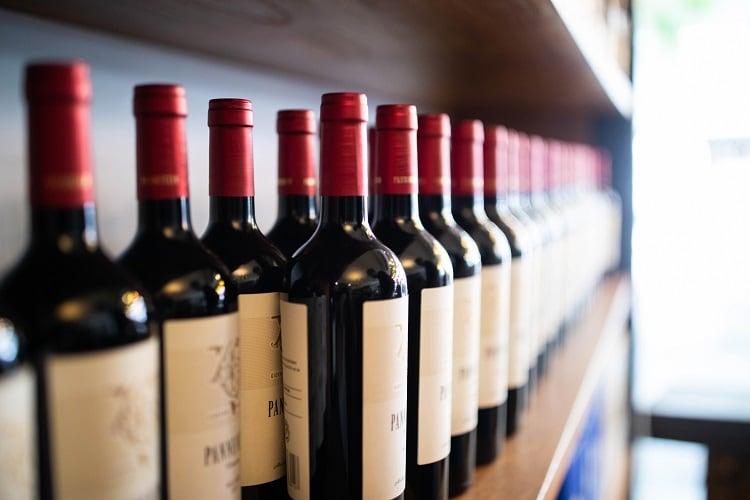
This is also advantageous for the consumer. “The impact of using our tool to make those decisions is anywhere between 50c to $20 per bottle of wine,” we were told.
For lower quality producers, it could cut 50c of a bottle. But for premium producers, it could wipe $20 off a bottle. For consumers, this means that a $60 bottle of wine could be reduced to $40.
“For the consumer, it means a better quality of wine with a consistent taste [in both ‘good’ and ‘bad’ years].”
Geographical and crop expansion
Deep Planet instigated pilot projects in Australia around three years ago, and has been commercialising its VineSignal product for just over a year. The company has more than 60 customers globally.
While Australia represents a major market for the ag tech start-up, it has global ambitions, with first entry into the northern hemisphere via France.
The company believes its technology can also be applied to other agricultural sectors in the future. “We’ve found that the problem we are solving…is adaptable to any type of crop. We’re looking to be the wine industry standard in the next few years, aiming to monitor over 1.5m hectares, and better understanding carbon sequestration in the soil and how that can be scaled…”
Improving global food production is another goal for Deep Planet. Sugar cane production, for example, could be a target area. Sugar cane has ‘exactly’ the same problems as wine grapes, and Deep Planet believes it could be instrumental in helping producers improve production efficiency.
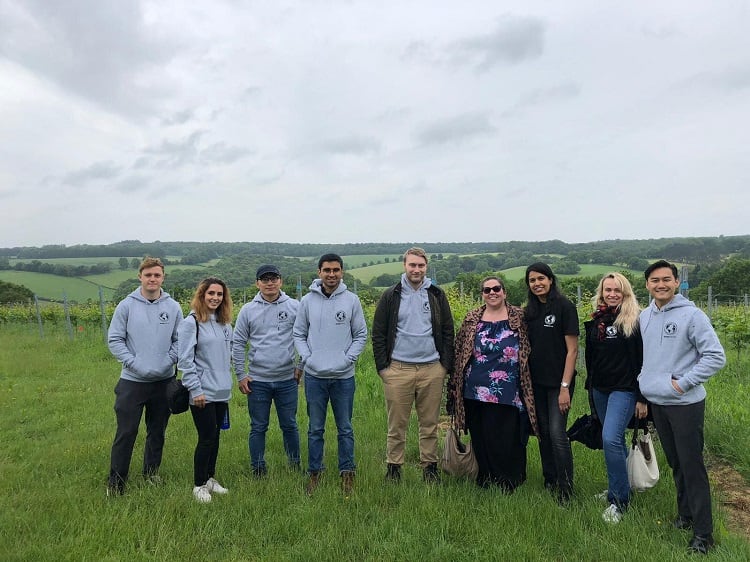
“There are similar problems we’re naturally getting pulled into, which we think we will address in the future.”
Deep Planet partners with Bordeaux wine grower
Deep Planet was integrated into EIT Food’s RisingFoodStars network in 2020. Today (21 July), the start-up is announcing a partnership with EIT Food and Bernard Magrez, a premium wine grower in Bordeaux, France.
The collaboration is designed to demonstrate the benefits of Deep Planet’s VineSignal on Bernard Magrez’ grapes.
“We’re looking at over 80 hectares of its vineyards to demonstrate the impact of this AI climate tech solution in managing maturity and crop conditions to help it adapt to climate change,” explained Shankar.
“It’s one of the of the leading innovators in this industry, and so a great partner to have. If we’re able to show a valid case study coming out of this partnership, it will be quite influential in the industry. And as you know, France is one of the biggest markets for us.”
Bernard Magrez welcomed the partnership. “We hope that our partnership with Deep Planet helps us and other winegrowers adapt to increasingly difficult natural conditions that we have to tackle,” said Sébastien Labat, director of Bernard Magrez Start-Up Win Incubator.


